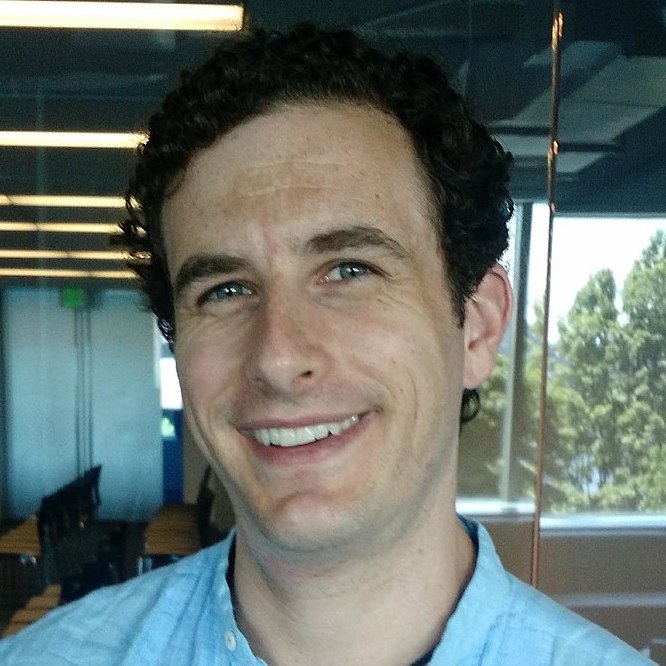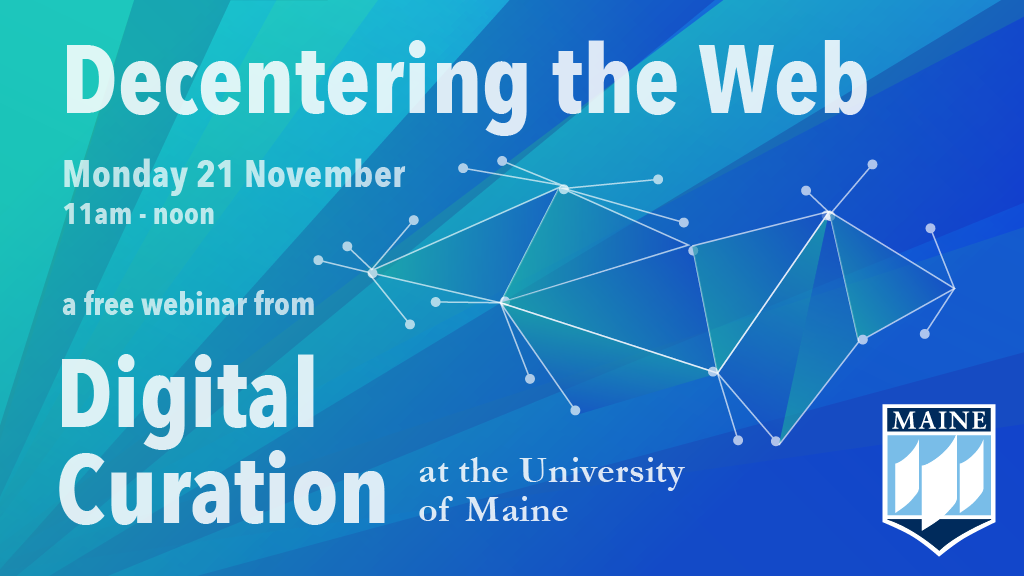Disinformation. Tech monopolies. Surveillance capitalism. For all its benefits, our current Internet is rife with vulnerabilities that can be exploited by the powerful and lead to an erosion of trust among the rest of us. The latest of UMaine’s Digital Curation teleconferences asks whether changes to the fundamental dynamic of the web might help us engineer a more healthy and equitable digital society.
De-centering the Web: From Platforms to Protocols
Monday 21 November 11am EDT
Interactive recording of this webinar
The Digital Curation program at the University of Maine invites you to a free webinar on potential changes in the underlying mechanism of the web that would affect the way we share data and culture in the future.
Signs of a seismic shift in the structure of the Internet are obvious in today’s headlines. Promises of radical new paradigms have arrived in quick succession, from blockchains to NFTs to the metaverse. Elon Musk’s push for Twitter to focus on profit over trust has prompted a surge of interest in alternatives to the current pantheon of tech monopolies. The variety of proposed solutions, from Mastodon and Matrix to Scuttlebutt and IPFS, can make it hard to see the forest for the trees. Nevertheless they share a common strategy of moving control from the Internet’s centers to its edges.

Although it is as old as the web itself, this vision of a decentralized network has been gaining champions in various online communities. Distilling a functional plan from the promise buried in this hype is the goal of Microsoft researcher Glen Weyl, the guest speaker for UMaine’s Digital Curation program for fall 2022 and leader of the Decentralized Social Technology Collaboratory. A much-read paper
Weyl co-authored with Ethereum founder Vitalik Buterin suggests a thoughtful way to jump from “web2,” a paradigm dominated by social media platforms that exploit user data for profit, to “web3,” a paradigm based on cryptographic trust.
In this webinar, we ask Weyl to paint a future in which the next-generation Internet hopes to ensure creators are rewarded for their work and democracy is not subverted by disinformation and collusion. Also in the audience will be a number of professional curators and conservators to question how web3 might change the way culture is created and shared, on- and offline.
The Digital Curation program has made a video recording available with an interactive table of contents.

